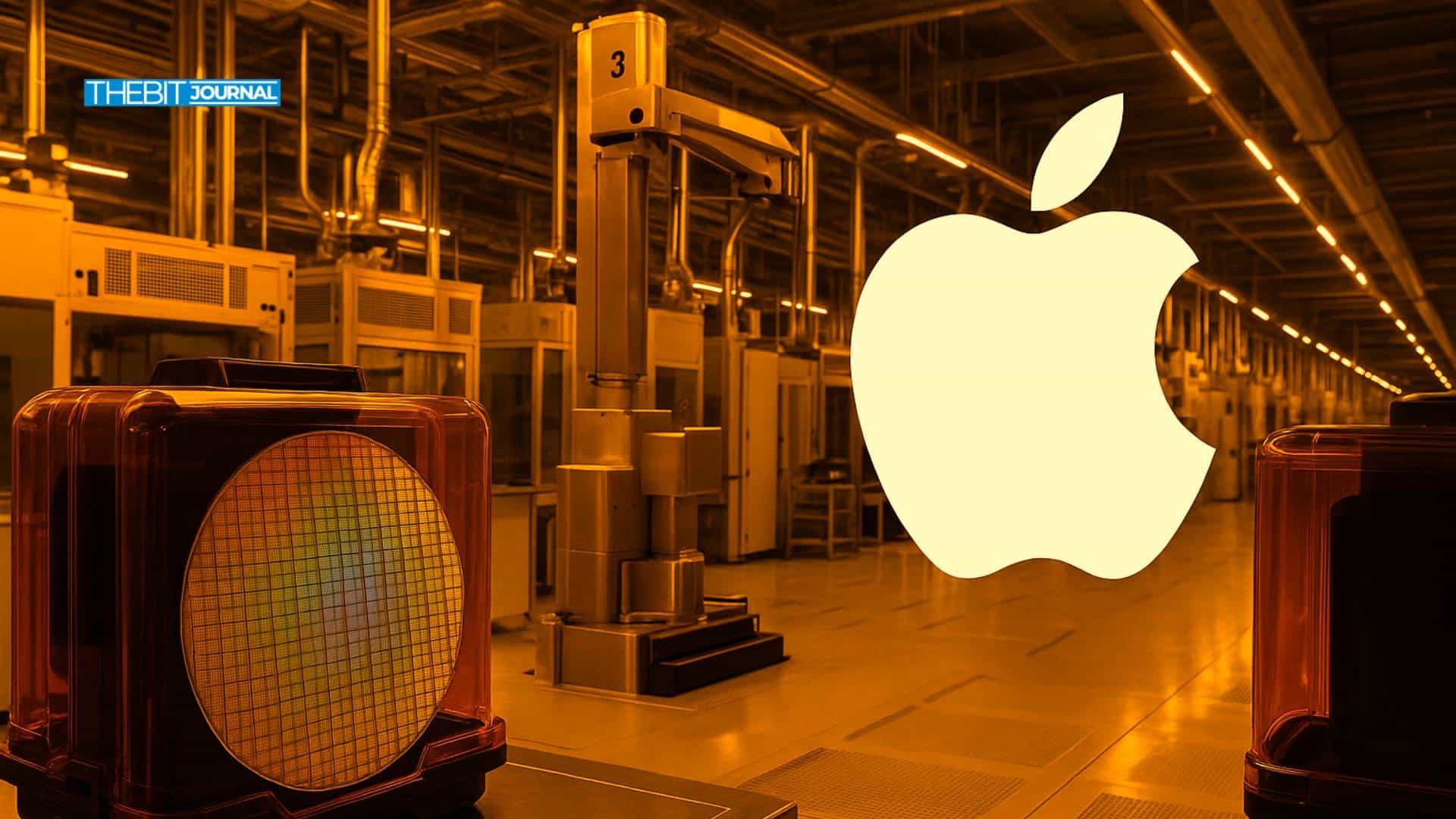Apple’s Domestic Chip Manufacturing begins with TSMC Arizona as Apple has officially commenced U.S.-based chip production, marking a significant shift in its global supply chain strategy. The tech giant is now sourcing silicon from TSMC’s Arizona facility, which began operations in 2024 and is producing advanced 4nm chips, including the A16 Bionic processor used in current-generation iPhones and iPads.
This move marks the first time Apple’s core silicon components are being fabricated at scale on U.S. soil — a major departure from its long-held reliance on overseas semiconductor partners, particularly in Asia.
This Arizona plant is only the beginning. Apple has confirmed that construction is underway on a third facility, which will support production of 2nm chips designed to power upcoming iPhones, Macs, and AI-based devices by 2026.
By partnering with TSMC on U.S. ground, Apple not only strengthens its control over core technology but also shields itself from geopolitical shocks and global supply disruptions that have plagued the tech industry since 2020.
$500 Billion Investment Plan Signals Long-Term Arizona U.S. Commitment
The domestic manufacturing push is part of Apple’s $500 billion U.S. investment plan announced earlier this year. This long-term initiative includes the development of multiple high-tech facilities, the expansion of its AI infrastructure, and the creation of approximately 20,000 new jobs across several states.

A major component of this strategy is the launch of a cutting-edge AI server factory in Texas, which will help Apple support on-device machine learning, Siri upgrades, and privacy-driven artificial intelligence applications.
To ensure a sustainable domestic ecosystem, Apple is also doubling its Advanced Manufacturing Fund from $5 billion to $10 billion, which will directly support suppliers and infrastructure partners like TSMC. This massive capital deployment underscores Apple’s intent not just to diversify its supply chain, but to anchor key innovation hubs within the United States for the long term.
Global Tensions and AI Competition Drive Strategic Realignment
Apple’s pivot toward U.S.-based chip production is as much a geopolitical calculation as it is a technological one. With growing trade tensions between the U.S. and China, and the looming threat of new tariffs on Chinese imports, Apple faces increasing pressure to localize key segments of its operations.
By reshoring chip manufacturing, the company not only ensures continuity of production but also aligns itself with the Biden-Trump-era push to bring semiconductor jobs and capabilities back to America.
The timing of this shift also coincides with Apple’s expanding focus on AI-driven devices and services. Silicon will be the backbone of its AI ambitions, and Apple appears to be ensuring that the future of its artificial intelligence strategy is not just designed in California — but built in America.
The Texas AI server facility and upcoming 2nm chip lines in Arizona are central to this transformation, enabling Apple to vertically integrate its supply chain and accelerate innovation at scale.
A Ripple Effect Across the Tech and Semiconductor Landscape
Apple’s move has already begun to reshape expectations within the tech industry. Competitors such as Google, Amazon, and Samsung are being forced to reassess their own chip sourcing strategies, especially as regulatory pressures and supply chain instability threaten business continuity.
Analysts believe that Apple’s bold investment in U.S. infrastructure could usher in a new phase of regionalized manufacturing across the tech sector. The influence extends beyond hardware. Apple’s U.S. production strategy is expected to impact everything from AI training workloads to iCloud’s future architecture, bringing more performance and privacy enhancements directly to U.S.-built chips.

Financial markets are also reacting favorably, with analysts noting Apple’s long-term bets are likely to support revenue resilience and improve investor confidence in times of global uncertainty.
Conclusion: Silicon Independence and Innovation at Home
Apple’s historic shift toward domestic chip manufacturing marks more than just a logistical update — it is a foundational realignment of how and where the company innovates.
By producing critical components like the A16 and future 2nm chips within the United States, Apple not only ensures greater resilience in the face of global shocks but also sends a strong message to competitors and regulators alike.
With $500 billion earmarked for American operations, Apple is redefining its identity as a U.S.-based innovator. Its decision to build an AI-powered future from U.S. soil, backed by advanced chipmaking and a robust supply chain, may serve as a blueprint for the entire tech industry.
As tensions rise and technologies advance, the world’s most valuable company is making sure that its most critical innovations are made — and secured — at home.
FAQs
Why is Apple making chips in the U.S. now?
Apple is shifting chip production to the U.S. to reduce reliance on overseas manufacturing, respond to tariff threats, and secure its supply chain for AI and future innovations.
What is being produced in the Arizona facility?
TSMC’s Arizona plant produces 4nm chips like the A16 Bionic. Apple plans to manufacture 2nm chips there for upcoming devices.
How much is Apple investing in U.S. manufacturing?
Apple is investing over $500 billion across four years, including factories, AI infrastructure, job creation, and support for domestic chip production.
How does this affect Apple’s long-term strategy?
The move gives Apple more control over its silicon and AI future, reduces global risks, and reinforces its status as a vertically integrated tech leader.
Glossary of Key Terms
TSMC (Taiwan Semiconductor Manufacturing Company): Apple’s main chip partner, now operating in Arizona.
2nm / 4nm Chips: Highly advanced chips, where smaller nodes mean more efficient and powerful processors.
Advanced Manufacturing Fund: Apple’s funding initiative to support high-tech production in the U.S.
AI Server Factory: A new Apple facility in Texas focused on chips for AI computing.





























